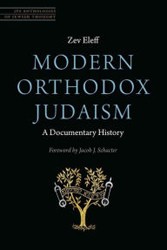The premise underlying this interesting study is that the values and assumptions of a particular group, in this case, the Haredi right-wing Orthodox world, can be identified and analyzed from the perspective of the literature produced for and consumed by members of the group in question. Recognizing that in addition to the primary and secondary works that comprise Jewish traditional literature, the Haredi world has of late produced marriage manuals, parenting guides, cookbooks, novels, and periodicals as well as “renderings” and “translations” of Halachic and theological works for its membership, the author accesses a wide range of literature in order to substantiate his analyses. A recurring theme in the work is what the author presents as a disconnect between, on the one hand, the expressed self-perceptions of the Haredi world that includes a deliberate sense of setting oneself apart from the dangers associated with general secular society, a rigid, sacrificial adherence to Torah values and lifestyle, and a total submission to the directives of acknowledged Rabbinic authority, and on the other, the introduction by means of literature of genres and even secular approaches packaged as legitimate Torah understandings of the issues being addressed. In addition to providing a helpful perspective for reading this type of material, Finkelman’s book demonstrates the challenges faced by a traditional minority group to living within a majority culture, striving not to be affected by the host society’s values and progressive thinking. Bibliography, endnotes, index.

Nonfiction
Strictly Kosher Reading: Popular Literature and the Condition of Contemporary Orthodoxy
- Review
By
– January 9, 2012
Yaakov (Jack) Bieler was the founding Rabbi of the Kemp Mill Synagogue in Silver Spring, MD until his retirement in 2015. He has been associated with Jewish day school education for over thirty years. R. Bieler served as a mentor for the Bar Ilan University Lookstein Center Principals’ Seminar and he has published and lectured extensively on the philosophy of Modern Orthodox education.
Discussion Questions

Jewish literature inspires, enriches, and educates the community.
Help support the Jewish Book Council.



